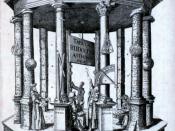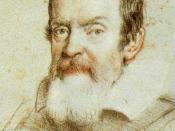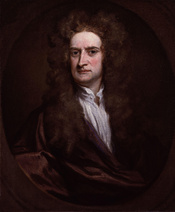Of all the changes that swept over Europe in the seventeenth and eighteenth centuries, the most widely influential the "Scientific Revolution." We associate this revolution with natural science and technological change, but the scientific revolution was really a series of changes in the structure of European thought itself. These changes greatly changed the human experience of every other aspect of life, from individual life to the life of the group. The Scientific Revolution did not happen all at once, nor did it begin at any set date. The Scientific Revolution that we associate with Galileo, Francis Bacon, and Isaac Newton, began much earlier. You can push the date back to the work of Nicolaus Copernicus at the beginning of the sixteenth century, or Leonardo da Vinci in the middle of the fifteenth. Even then, you haven't gone back far enough and you haven't included all the factors that contributed to the Scientific Revolution.
There are many great scientists that contributed to the Scientific Revolution. In 1534 Nicholas Copernicus wrote Concerning the Revolutions of the Celestial Spheres. This book would only solve some of the problems concerning the epicycles of the Ptolemaic system. Tycho Brahe tried to come up with different ideas, yet he kept the earth at the center. His system was that the moon and sun revolve around the earth, and every other planet revolves around the sun. Brahe's accurate data allowed Kepler to develop his theory of elliptical planetary motion and provided evidence for the Copernican system. In addition, Kepler wrote a qualitative description of gravitation.
Galileo Galilei is considered by many to be the father of modern physics because of his willingness to replace old assumptions in favor of new scientifically deduced theories. He is famous for his celestial theories, and his works on...


